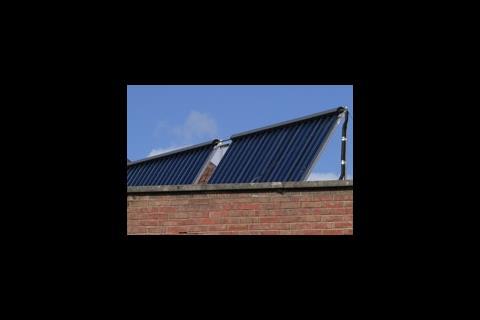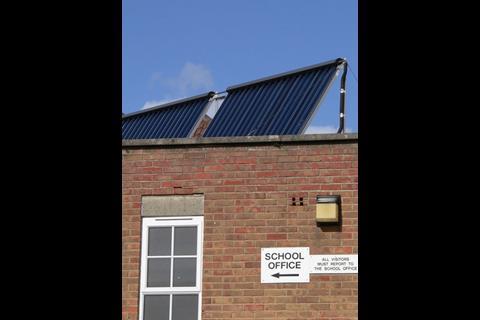Dalkia installs plant equipment, including a solar thermal array, that is expected to deliver CO² savings of over 41 tonnes a year
Energy saving solutions firm Dalkia has designed and installed a new range of plant equipment, including a solar thermal array, at St Martin’s Junior School in Worle, Weston-Super-Mare.
The system is expected to deliver CO² savings of over 41 tonnes a year at the school.
The scheme is part of North Somerset Council’s Local Structure Plan, which will see all new buildings generating 15% of their energy requirements using onsite methods of microgeneration.
Built in to the strategy is a sustainable model of energy saving and re-investment by Dalkia. This sees the school buildings within the portfolio upgrading their plant and equipment using capital savings made through energy efficiencies implemented by the energy firm.
Dalkia completely replaced the 40-year old oil-fired heating system and incorporated a new condensing boiler that uses gas over the more expensive oil alternative, combined with a solar thermal system.
In order to ensure optimum efficiency of the new system, all pipework and valves have been insulated to prevent heat losses and unnecessary wastage of fuel.
In addition the school building has been fitted with a Building Management System (BMS) to provide precise control over all the building services.
Steve Hodges, Energy, Policy and Project Officer at North Somerset Council, said: "When we were looking for alternatives to the school’s old oil boiler system, we knew that we needed to find a strategy that would be environmentally friendly and keep costs down at the same time.
"Dalkia provided us with a variety of options on how to achieve this and we settled on the gas boiler and solar hot water integrated system. This has helped to save money, which is crucial given our environment, and also helps to set a good example to the pupils, who are learning about climate change and energy efficiency."
Postscript
For further information visit Dalkia.




























No comments yet